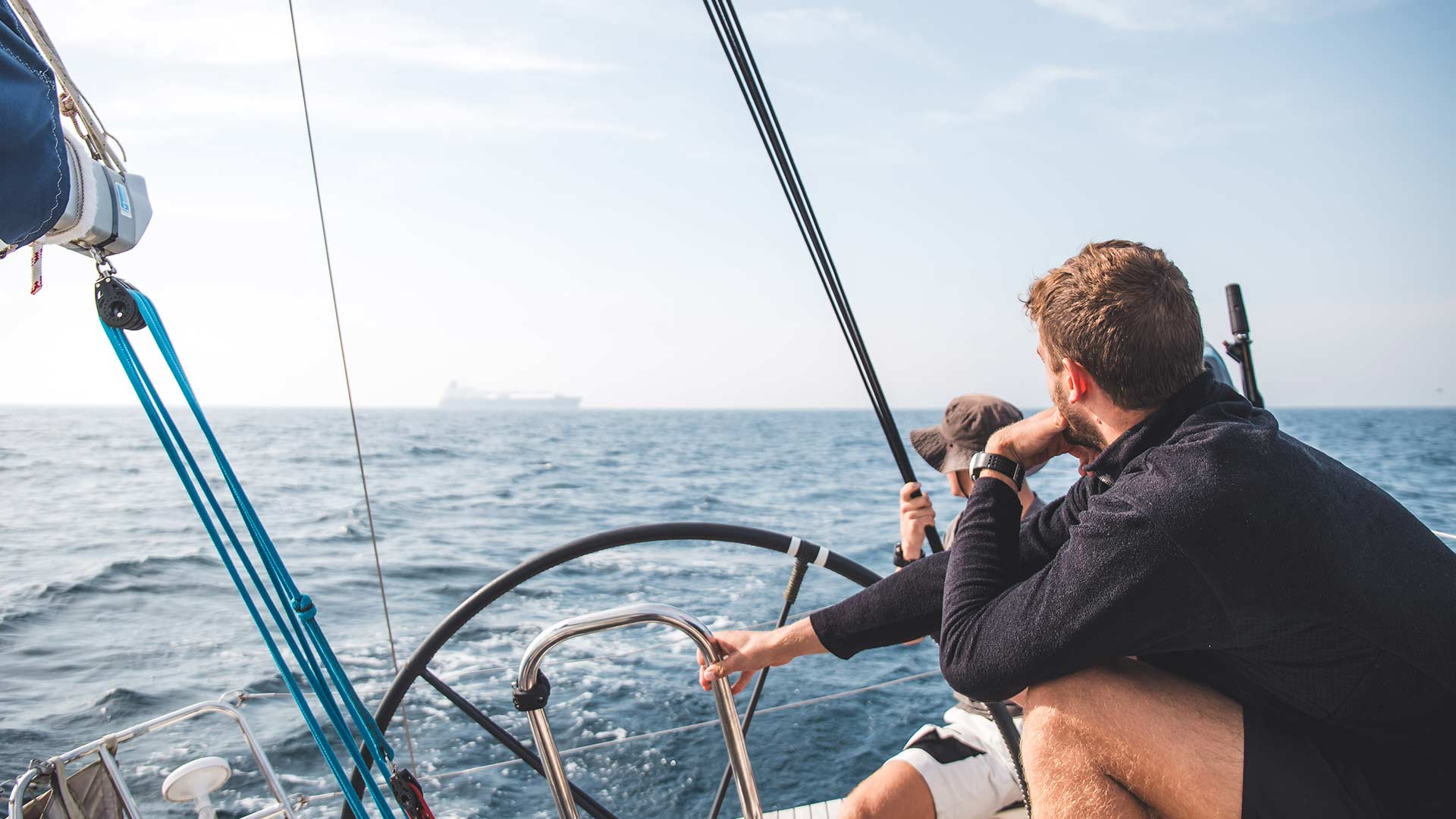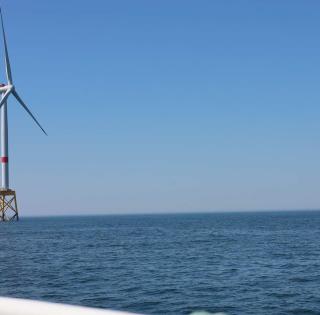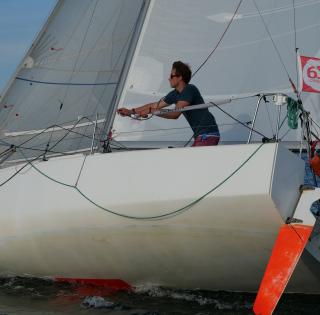
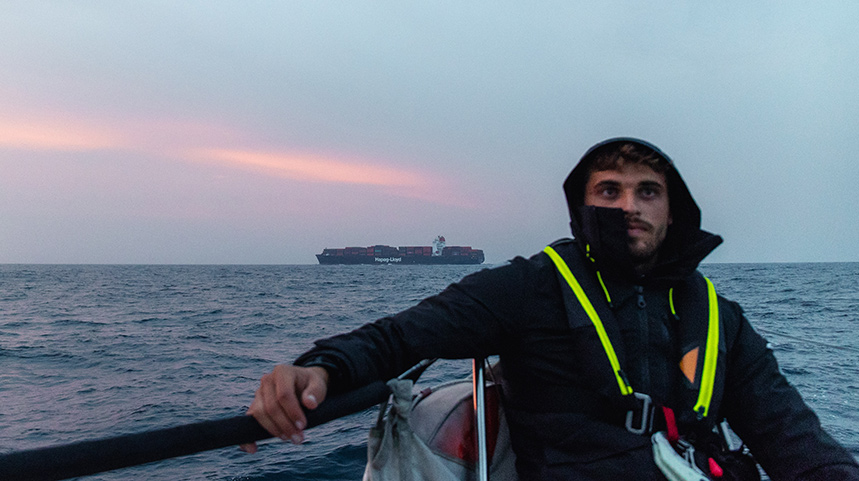
24 hours: that’s how long it took Clément, Félicien, Julien and Loann to reach the Isles of Scilly, a British archipelago located in the Celtic Sea, 115 nautical miles from Brest.
On their outward journey, the students crossed the Ushant rail by night. This is a closely supervised maritime space owing to the heavy traffic. It was therefore imperative to avoid any collisions with freighters, container ships and ferries… A high-pressure, but exciting challenge that kept them all on the ball!
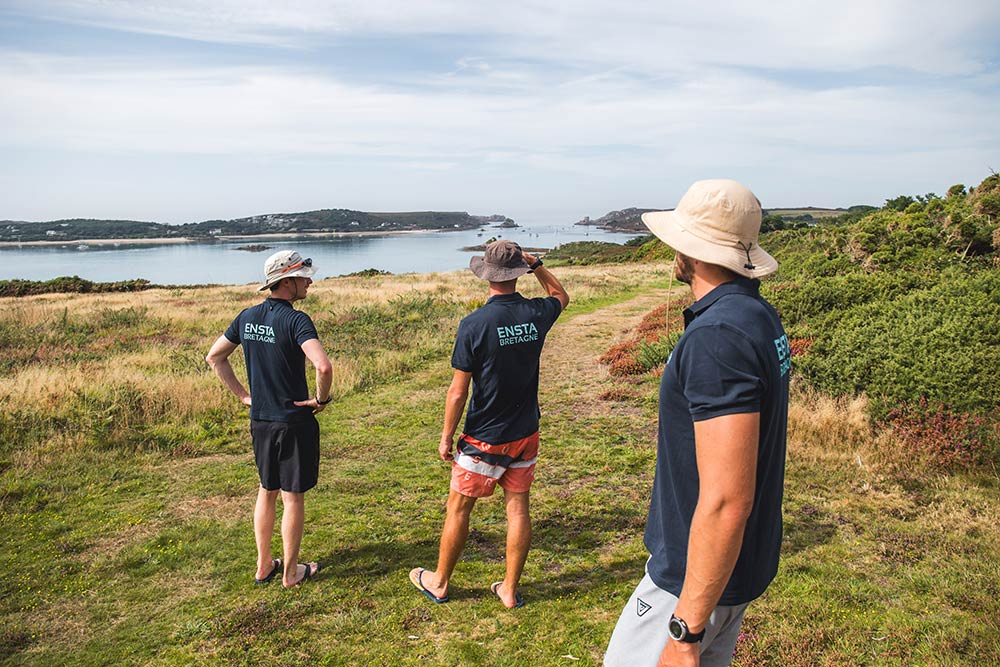
Explore the Isles of Scilly
After a "tow foiling" session near the islands, the four friends disembarked on dry land to soak up the beautiful scenery on a tour around the archipelago’s different islands.
The short trip included a visit to Tresco and its sub-tropical garden, seeing the sunset at Bryher and watching a rugby match on the main island of St Mary’s in the town’s iconic pub.
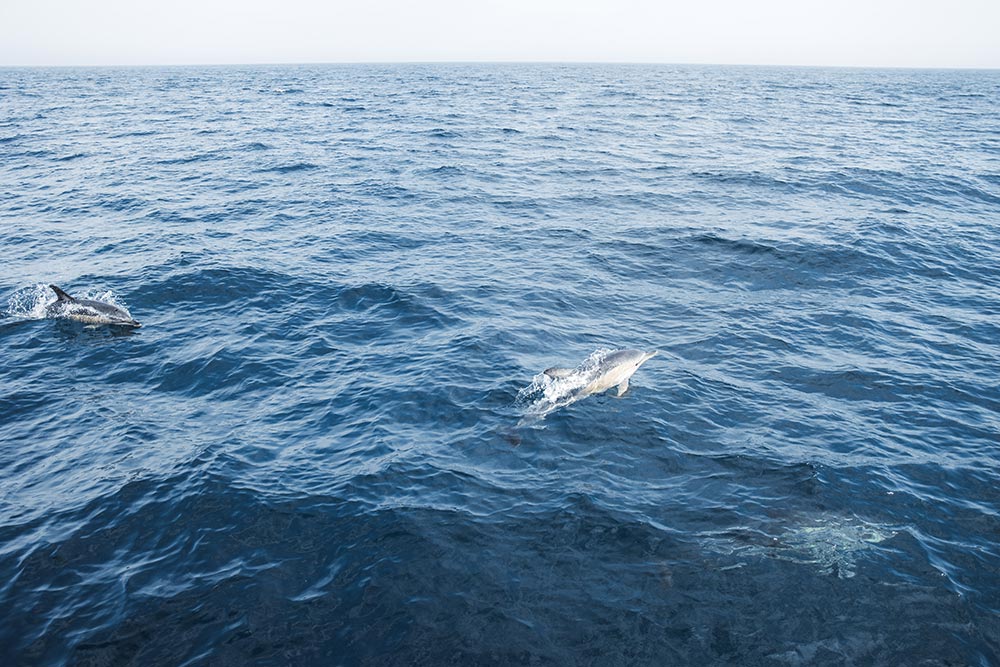
On our return leg, aboard the Dufour 34 which the French Navy Sailing Club had lent us, we left the archipelago at just the right speed, with our music on board, surrounded by dolphins: our favorite memory.
But then the crew had to weather a rainstorm in the middle of the Channel, a stressful moment which didn’t dampen the crew’s spirits! The apprentice skippers returned to Brest harbor on the Sunday afternoon after a 26-hour crossing.
This sailing trip gave us invaluable experience, not just in terms of using the various instruments on-board but also of setting up a watch system*.
An excellent initial training in preparation for longer crossings…
*This is a system whereby each crew member takes responsibility for the various tasks in turn – keeping watch on deck or maneuvers for example – while other crew members rest.






